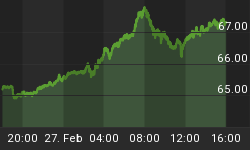The grainy footage of Great Depression soup lines and Hoovervilles now in heavy rotation on the major news outlets has been largely counterbalanced by a parade of economists who reassure us that such a protracted downturn is currently inconceivable. Their confidence stems primarily from the belief that government safety nets enacted since the New Deal, together with a Fed chairman who is a self-professed depression buff, will prevent a replay of the 1930s. As usual, this analysis is woefully optimistic and sidewalk pencil sales may in fact be a growth industry.
Although Bernanke may have spent much time studying the Great Depression, his understanding of it is anything but sound. That epic slowdown resulted from a series of policy mistakes, first by the Federal Reserve and then by the Federal Government. Bernanke's view is that these mistakes were simply not large enough. What the current Fed chairman does not grasp is that the seeds of the Depression were sown during the "roaring" 1920s when the Fed, in an effort to support the British pound, kept interest rates much too low. It was this unnaturally cheap money that fueled a raging stock market bubble. In 1929, when the Fed finally came to its senses and raised rates, the bubble finally popped. In his reading of this history, Bernanke ignores the effects of the overly easy policy and simply lays blame on the tightening.
As the recession progressed, both Hoover and Roosevelt, in politically inspired efforts to ease the pain, repeatedly interfered with free market forces working to correct the imbalances. This ultimately turned what would have been an ordinary, though perhaps severe recession, into what we now call the Great Depression. This time around, the Greenspan/Bernanke Fed blew up even bigger bubbles and both the Fed and the Federal Government now show an even greater commitment in preventing free market forces from rebalancing our economy. As a result, similar to the way that the "War to End all Wars" had to be rechristened after 1939, future historians may need to come up with a new term for the Great Depression.
Rather than acting as safety nets, the programs now being devised by government will act more like snares, further impeding market forces from righting the ship. But for those who insist that a new "New Deal" is needed, it is important to retain a sense of scale. Prior to the massive expansion of Federal programs in 1933, the government was very small relative to the economy of that time. Though I believe that many of the economic policies of the New Deal were unwise and simply prolonged the Depression, at least back then we could afford them. Today of course, the Federal Government is already enormous, and any increase in spending will either have to be financed by further borrowing from abroad or though additional money printing by the Fed.
For his part, Bernanke blames the Depression on the Fed not printing enough money. Had the Fed done precisely what Bernanke now thinks they should have, the Great Depression would have been much worse. Had the Fed tried to re-inflate the stock market bubble or keep it from bursting in the first place, it's the dollar that would have collapsed, and Depression-era America would have looked liked Weimar Republic Germany. As bad as the Great Depression was, hyperinflation would have made it even worse.
The good news is that there is still time to alter course and steer clear of both hyper-inflation and depression. The bad news is that if we remain on our current course that is precisely where we will end up. Our days of dominating the global economy are clearly coming to an end. The only question is will we follow the path of Great Britain or Argentina?
For a more in depth analysis of our financial problems and the inherent dangers they pose for the U.S. economy and U.S. dollar denominated investments, read my new book "Crash Proof: How to Profit from the Coming Economic Collapse." Click here to order a copy today.
More importantly, don't wait for reality to set in. Protect your wealth and preserve your purchasing power before it's too late. Discover the best way to buy gold at www.goldyoucanfold.com, download my free research report on the powerful case for investing in foreign equities available at www.researchreportone.com, and subscribe to my free, on-line investment newsletter at http://www.europac.net/newsletter/newsletter.asp.















